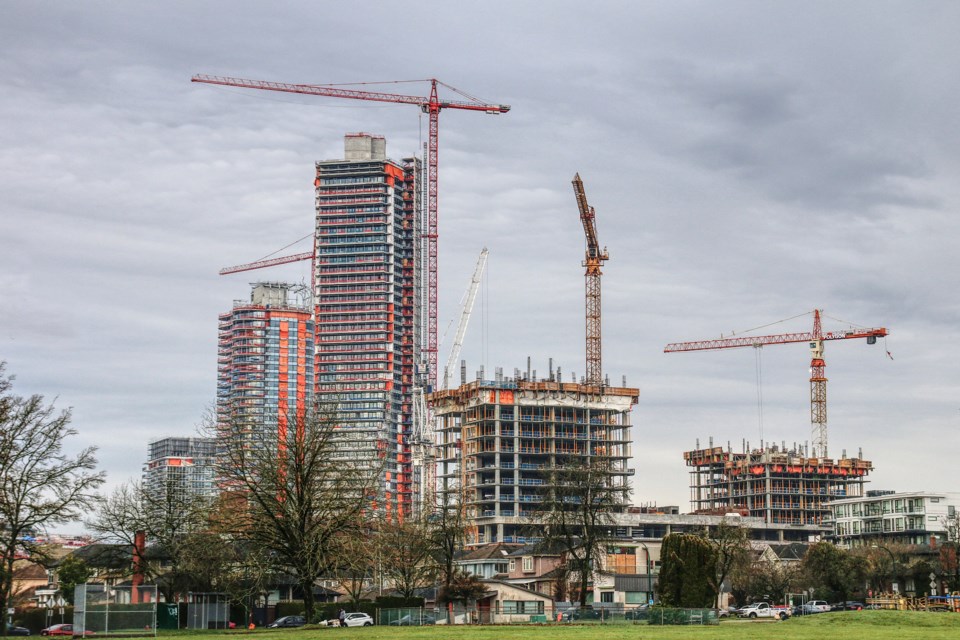For decades, Canada had a product the world craved and was willing to pay exorbitant prices for. But rather than expand production to meet global demand, environmentalists and special interest groups blocked critical infrastructure, demonizing local proponents of these projects. Following political pressure, the federal government, along with progressive provinces like B.C., effectively banned them as exports. Eventually, private capital dried up, and government was forced to step in, taking over projects in the name of the national interest.
This isn’t just the story of Canada’s resource industry—it’s also the story of our real estate sector.
Back in 2016, billions of dollars in domestic and foreign investment flooded into Canada’s housing market, pushing up prices and creating an affordability crisis. But a crisis is also an opportunity. Having too much money coming into your economy is the ultimate “good problem” to have. Unfortunately, instead of liberalizing land-use policies in our major cities to create jobs and build critical infrastructure, our policymakers responded by banning foreign investment in real estate while simultaneously taxing and regulating domestic investors into submission.
Now, we face an even bigger crisis—one that presents us with a generational opportunity. While pipelines and critical resource projects remain important, they take years to develop. In today’s economic climate, we must act quickly and decisively.
When China cracked down on Hong Kong, Singapore swiftly positioned itself as a refuge for displaced legal and financial professionals. Now the Trump administration is targeting foreign workers and science professionals, and Canada has a golden opportunity to capitalize.
Canada should immediately offer five-year work visas to all U.S. H-1B visa holders, as well as anyone holding a master’s degree or PhD in a hard science from a Top 100 U.S. university. Additionally, all U.S. medical professionals should be fast-tracked to bolster our strained health-care system. Anyone who spends four out of five years in Canada should qualify for citizenship.
To house these new arrivals, we must aggressively liberalize land-use policies in our major cities. The national ban on foreign homebuyers must be lifted. While Toronto and Vancouver’s foreign buyer taxes could remain, they should be restructured to apply only to resale properties, with new developments exempted. This approach would ensure that foreign capital fuels new housing supply.
Governments must also shift how they fund infrastructure. Ottawa and the provinces should commit to fully funding infrastructure in cities that embrace growth, eliminating the excuse that “growth should pay for growth.” In return, cities must be prohibited from imposing development charges. Consider one Vancouver multiplex project where municipal fees amounted to $847,000 for just six units of missing-middle housing—comparable to the project’s total labour costs. Eliminating development charges would lower the cost of housing construction, making homes more affordable.
Every policy decision from here on out must pass a simple test: Is it good or bad for the economy?
That’s why it was so disappointing to see Housing Minister Ravi Kahlon start his new mandate by vilifying Airbnb operators instead of working with them. These are thousands of small business owners, and we will need them to strengthen our tourism sector, especially if we are going to be asking British Columbians to vacation in Canada instead of the U.S.
These measures would revitalize our economy and provide resilience in an uncertain future. Unlike manufacturing, real estate development cannot be outsourced. It’s also a bigger part of our economy than manufacturing, mining, logging, and oil and gas combined. The homebuilding industry needs to be seen as vital to the country.
Will need a robust workforce. Fortunately, the U.S. presents another opportunity. The Trump administration’s crackdown on undocumented immigrants has left a massive, highly skilled construction workforce in limbo. Canada should tap into this labour pool to help construct the homes and infrastructure needed to build the Canada of the future.
Together, we can create a stronger Canada with world-class, “superstar” cities from coast to coast. Toronto like Tokyo. Vancouver like Singapore. Montreal like Paris. Calgary like Dubai.
If we have the vision and the courage to act, we can build a future worthy of Canada’s potential.
Dan Scarrow is president and CEO of the Macdonald Realty Group of Companies.




